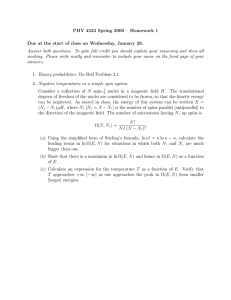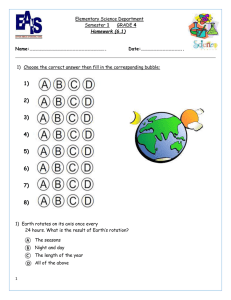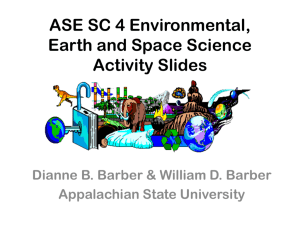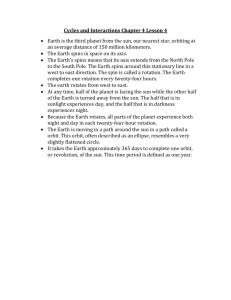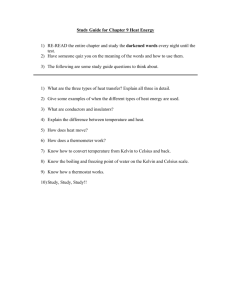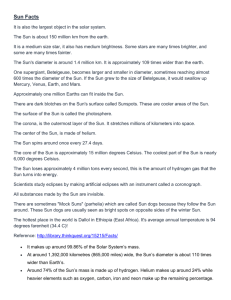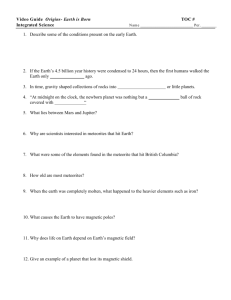Information on The Sun, Earth and Moon
advertisement
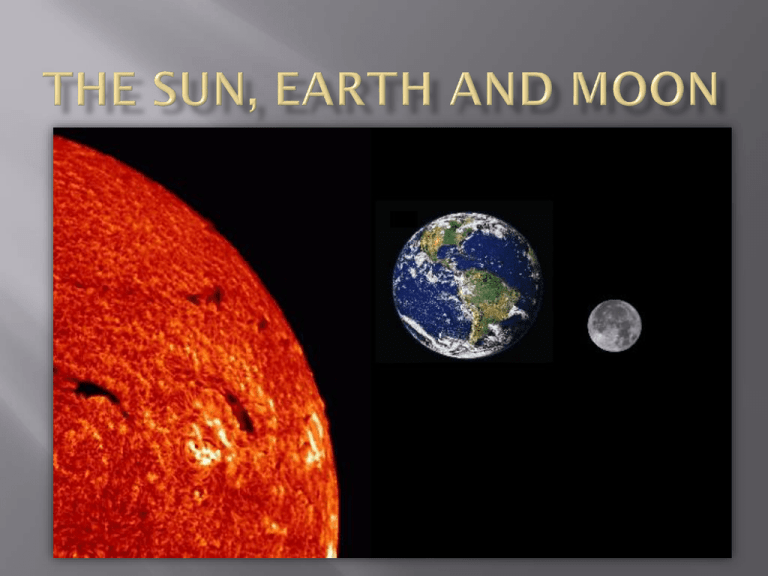
is a star is 1.4 million km in diameter is 400 times larger than the Moon is 100 times bigger than the Earth is 149,597,887 km from the Earth is relatively stationary spins on its axis is primarily made up of hydrogen and helium gas produces its own light its average surface temperature is 6,000 degrees Celsius has a magnetic field produces energy through nuclear fusion because it is made up of gas does not rotate as a solid body. It rotates faster at the equator and slower at its poles. it rotates once every 27 days at the equator and once every 31 days at its poles is a planet is 12,742 km in diameter it is dense because it has a large core of iron and other metallic elements its distance from the Moon is 384,403 km its distance from the Sun is 149,597,887 km spins on its axis once every 24 hours orbits the Sun once every 365 days has a magnetic field it has an atmosphere its atmosphere is rich in nitrogen and oxygen 71% of it is covered in water has life on it reflects light from the Sun its average surface temperature is 14 degrees Celsius if the Sun was the size of a soccer ball, the Earth would be the size of a pea in comparison is a moon its diameter is 3,476 km its ¼ the size of the Earth its gravity is 1/6 that of the Earth’s is relatively light for its size because it has a small core is 384,403 km from Earth is about 150,000,000 km away from the Sun (on average) has no atmosphere its average surface temperature during the day is 100 degrees Celsius and it is -150 degrees Celsius at night spins on its axis once every 28 days we always see the same side of the Moon from Earth orbits the Earth once every 28 days does not produce its own light, it reflects light from the Sun has a weak magnetic field has 8 phases
